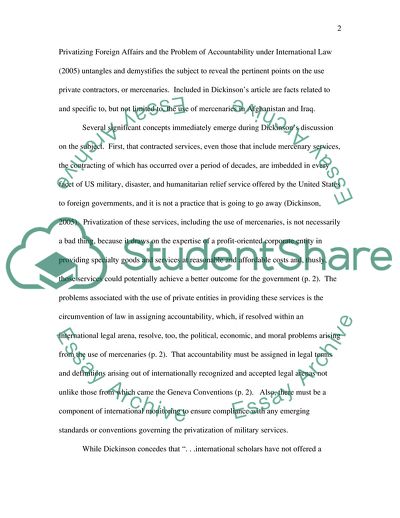Cite this document
(Civilian Contract Security in Afghanistan and Iraq Literature review, n.d.)
Civilian Contract Security in Afghanistan and Iraq Literature review. Retrieved from https://studentshare.org/politics/1705051-civilian-contract-security-in-afghanistan-and-iraq
Civilian Contract Security in Afghanistan and Iraq Literature review. Retrieved from https://studentshare.org/politics/1705051-civilian-contract-security-in-afghanistan-and-iraq
(Civilian Contract Security in Afghanistan and Iraq Literature Review)
Civilian Contract Security in Afghanistan and Iraq Literature Review. https://studentshare.org/politics/1705051-civilian-contract-security-in-afghanistan-and-iraq.
Civilian Contract Security in Afghanistan and Iraq Literature Review. https://studentshare.org/politics/1705051-civilian-contract-security-in-afghanistan-and-iraq.
“Civilian Contract Security in Afghanistan and Iraq Literature Review”. https://studentshare.org/politics/1705051-civilian-contract-security-in-afghanistan-and-iraq.


